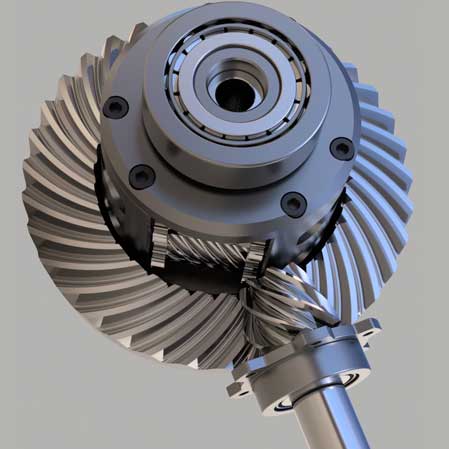Introduction to Custom Thrust Washers
In the world of engineering and manufacturing, the term ‘custom thrust washers’ may not be as ubiquitous as other more common terms. However, their role in the industry cannot be overstated. Simply put, custom thrust washers are thin pieces of material used to fill gaps or spaces between objects, often for alignment or leveling purposes. They come in different shapes, sizes, and materials, and are typically tailored to meet specific needs or applications.
The ability to customize thrust washers provides flexibility and precision to engineers, as they can design and create thrust washers to fit specific requirements. This eliminates the need to settle for standard thrust washers that may not provide the exact fit required for a particular application. As a result, custom thrust washers play an invaluable role in achieving the perfect fit and alignment in various assembly processes.
The use of custom thrust washers is widespread, ranging from the automotive industry to aerospace, electronics, construction, and more. They are indispensable components that ensure the smooth functioning of various machines and equipment. Despite their seemingly simple design, custom thrust washers are critical to the efficiency and longevity of these machines.
Understanding Shim Spacers
Shim spacers, another term synonymous with thrust washers, are used in various industries. They are made from a variety of materials, such as plastic, rubber, metal, or even wood, and are primarily used to ensure a precise fit or alignment between parts or components.
Shim spacers are often used to adjust the space or gap between two components, to compensate for wear, or to achieve a specific clearance or preload. They are commonly found in machinery, vehicles, appliances, and construction projects where precision and alignment are key to optimal performance and safety.
While the term ‘shim’ is often used interchangeably with ‘spacer’, it’s crucial to understand that not all spacers are thrust washers. The main distinguishing factor lies in their usage. Shim spacers are designed to fill in gaps and adjust alignments, while spacers primarily create distance or separation between two components.
Spacers and Washers: What’s the Difference?
It’s not uncommon to confuse spacers and washers due to their similarities in shape and function. However, these two components serve different purposes and have distinct characteristics that set them apart.
Spacers are primarily used to create a precise distance or separation between two parts or components. They are typically cylindrical, have a specific length, and are often found in assemblies where two parts need to be kept apart at a certain distance.
Washers, on the other hand, are flat discs with a hole in the middle. They are typically used to distribute pressure or load evenly across the surface, to prevent damage or wear to the parts being assembled. Washers also help to reduce friction and provide a smooth surface for the assembly.
While both spacers and washers play a vital role in assemblies, their functions and applications differ significantly. Understanding these differences is crucial when deciding which component to use in a particular application.
The Role of Stainless Steel Shim Washers
Stainless steel shim washers are a popular choice in many industries due to their durability, resistance to corrosion, and ability to withstand high temperatures and pressures. These properties make them ideal for use in harsh environments or demanding applications.
Stainless steel shim washers are used to fill gaps or spaces between parts, ensuring proper alignment and fit. They are also used to distribute load evenly across a surface, minimizing wear and tear on the parts. This not only ensures the efficient operation of machinery but also extends the lifespan of the components.
Furthermore, stainless steel shim washers offer a high degree of precision, which makes them ideal for applications where exact measurements are crucial. Their resistance to deformation under high pressure makes them a preferred choice in industries such as aerospace, automotive, and heavy machinery.
Precision Shim Washers: Why They Matter
Precision shim washers are a subtype of thrust washers that are manufactured with a high degree of accuracy. These components are used in applications where the smallest deviation in size or thickness can lead to significant problems.
Precision shim washers are often used in the assembly of high-performance machinery, where exact alignment and spacing are crucial for optimal performance. They are also used in applications involving high-speed rotation or movement, where imbalances can cause significant wear or damage.
The use of precision shim washers ensures that all components in an assembly are perfectly aligned and spaced, promoting smooth operation and reducing the risk of failure. This level of precision also results in reduced maintenance needs and longer lifespan for the machinery or equipment.
Shim vs Washer: Key Differences
While thrust washers and washers may appear similar, they serve different purposes and are used in different applications. A shim, often custom-made, is a thin piece of material used to adjust the fit or alignment of an assembly. It fills gaps or spaces between parts, ensuring proper alignment and fit.
A washer, on the other hand, is a disc-shaped piece of material, typically metal, with a hole in the middle. It’s used primarily to distribute load evenly across a surface, reducing friction and preventing wear and tear on the parts.
The key difference between a shim and washer lies in their purpose and application: thrust washers are used for alignment and adjustments, while washers are used for load distribution and friction reduction.
Exploring Different Types of Thrust Washers
Thrust washers come in various types, each designed for specific applications. Some common types include slotted thrust washers, which have a slot that allows them to be placed around a bolt or shaft without disassembling the machinery. Another type is the laminated shim, composed of thin layers that can be peeled off to achieve the desired thickness.
There are also edge-bonded thrust washers, which are made up of several layers bonded together at the edges. This allows for fine adjustments in thickness by removing individual layers. Solid thrust washers, as the name suggests, are single-piece thrust washers that come in a specific thickness.
Selecting the right type of shim depends on the specific requirements of the application, including the desired level of precision, the environment in which the shim will be used, and the materials that the shim will be interacting with.
The Manufacturing Process of Custom Thrust Washers
The manufacturing process of custom thrust washers involves several steps, starting with the selection of the appropriate material. This could be metal, plastic, rubber, or even wood, depending on the requirements of the application.
The next step is the cutting of the material into the desired shape and size. This can be done using various methods such as laser cutting, water jet cutting, or stamping. The cut pieces are then deburred to remove any sharp edges or burrs that could interfere with the shim’s function.
Finally, the thrust washers are inspected for quality control, ensuring that they meet the exact specifications required. This may involve measuring the thickness, diameter, or other dimensions, as well as checking for any defects in the material or finish.
Common Applications of Thrust Washers in Various Industries
Thrust washers are used in a wide range of industries due to their versatility and the precision they offer. In the automotive industry, for example, thrust washers are used in engines, transmissions, and brakes to ensure proper alignment and fit.
In the aerospace industry, thrust washers are used in the assembly of aircraft components, where precise alignment and spacing are crucial for safety and performance. Thrust washers are also used in the construction industry to ensure the proper alignment of structural components.
In electronics, thrust washers are used to fill gaps between components, ensuring proper heat dissipation and preventing damage due to overheating. The versatility of thrust washers, coupled with their ability to be customized to fit specific needs, makes them an essential component in many industries.
The Versatility and Importance of Custom Thrust Washers
In conclusion, custom thrust washers play a crucial role in various industries, ensuring precise alignment, proper fit, and optimal performance of machinery and equipment. Their versatility, coupled with their ability to be customized to specific needs, makes them indispensable in the world of engineering and manufacturing.
Despite their seemingly simple design, the precision and accuracy they offer have a significant impact on the efficiency and longevity of various machines and equipment. As the demand for precision and efficiency continues to grow, one can only expect the importance of custom thrust washers to increase in the years to come.
Whether you’re an engineer, a mechanic, or someone interested in the intricacies of manufacturing, understanding the role and importance of custom thrust washers is crucial. As this comprehensive FAQ guide has shown, these small components hold the key to unlocking the mysteries of precision and alignment in the world of manufacturing.
Custom Thrust Washer Manufacturing | Michigan
Northern Industrial Manufacturing is your turnkey partner for even the most challenging projects. Our experts understand which options work best for your specific material and surface finish requirements, and offer the most advanced technologies to meet the needs of your unique project.
We will bring your parts to market on time – with assistance from prototype to volume production – quickly, affordably and efficiently as possible.
Thank you for visiting our blog where we keep customers updated and informed on the latest processes in automotive parts manufacturing!
Please check back often if you would like to learn more about the world of precision thrust washers, selective shims, spacers, and other automotive parts.




